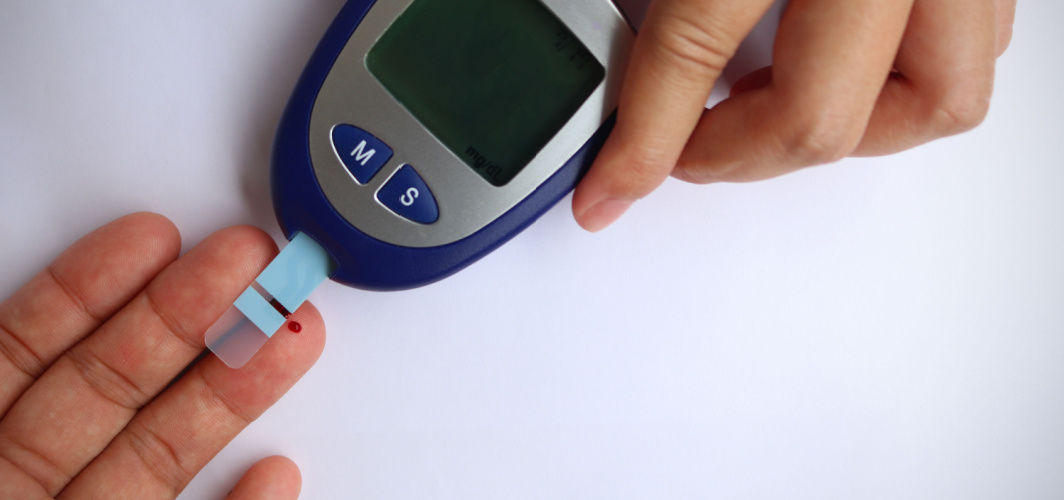Diabetes Management
The Connection Between Diabetes And Fatigue
9 min read
By Apollo 24|7, Published on - 05 July 2023, Updated on - 22 February 2024
Share this article
0
0 like

Contrary to popular belief, fatigue, and tiredness do not mean the same. Tiredness can be alleviated by rest, but fatigue often continues regardless of rest and can lead to long-term feelings of lethargy and exhaustion. Fatigue is a common symptom that can significantly impact an individual’s quality of life. It is advisable to consult with your doctor to determine the underlying cause of your fatigue and explore appropriate solutions.
Fatigue Signs
Fatigue goes beyond mere sleepiness, occasional energy depletion, or an irresistible urge to sleep. It presents as a pervasive lack of both emotional and physical energy, which can significantly impact one's ability to perform daily activities. Typical symptoms of fatigue include:
- Weakness
- Exhaustion
- Lack of energy
- Tiredness
- Difficulty concentrating
- Lack of motivation
In some cases, fatigue can also manifest as changes in mood, a decrease in physical and mental responsiveness, or headaches.
Why Does Diabetes Cause Fatigue?
There can be various reasons behind diabetes resulting in fatigue. These include:
1. Blood Sugar Fluctuations
- Diabetes affects the body's ability to regulate and utilize blood sugar effectively. After a meal, food is broken down into glucose, a simple sugar. With the help of insulin, glucose is absorbed by the cells to produce energy. However, in diabetics, either the pancreas doesn't produce sufficient insulin or the body is unable to use it efficiently, resulting in excess glucose in their bloodstream. Insufficient glucose in the cells can lead to fatigue and weakness.
- Similarly, diabetes medications, like metformin or insulin, help enhance the movement of sugar into cells, preventing its accumulation to harmful levels. However, a possible side effect of these medications is low blood sugar, also known as hypoglycemia. Hypoglycaemia can contribute to fatigue, particularly in individuals who experience frequent episodes and may not receive sufficient warning signs of dropping blood sugar levels. Even after receiving treatment for hypoglycemia, a person may continue to experience fatigue.
2. Other Symptoms of Diabetes
Other symptoms of diabetes can contribute to a person's overall feeling of being unwell, causing them to experience fatigue. These symptoms include:
- Frequent urination
- Extreme hunger even after eating
- Excessive thirst
- Blurred vision
- Unexplained weight loss
While not all of these symptoms directly cause fatigue, they can contribute to a sense of discomfort and unease, which may lead to the development of fatigue.
Furthermore, some symptoms of diabetes can disrupt an individual’s sleep pattern. For instance, individuals with diabetes may wake up multiple times during the night to urinate or quench their thirst. Discomfort in the limbs, feet, and hands can also make it difficult for people with diabetes to fall asleep and remain asleep. These sleep disturbances can further contribute to feelings of fatigue.
3. Complications of Diabetes
People with diabetes may experience complications that can result in feelings of fatigue and persistent exhaustion. These complications often arise when blood sugar levels remain elevated for an extended period. Some potential complications include that can cause fatigue include:
- Frequent infections
- Kidney problems, such as kidney failure
- Blindness
- Nerve damage (diabetic neuropathy)
- Heart disease
4. Side Effects of Diabetes Medications
Certain medications, which are used to treat diabetes complications and the condition itself, can have side effects that lead to fatigue. Here are some examples of medications that may cause fatigue:
- Corticosteroids: These medications are commonly prescribed to manage pain and inflammation. Abrupt reduction of corticosteroid dose after prolonged use or the impact of these medications on sugar levels can lead to fatigue.
- Statins: Statins are prescribed to lower levels of LDL cholesterol (bad cholesterol). While statins are generally well-tolerated, some people may experience fatigue.
- Diuretics: Diuretics are commonly used to treat high blood pressure by promoting increased urine production. However, the frequent urination caused by diuretics can lead to disruption of sleep and dehydration, resulting in fatigue.
- Beta-blockers: Beta-blockers are prescribed to manage anxiety and high blood pressure by slowing down the heart rate and reducing the force of contractions. These medications can sometimes cause chronic fatigue as a side effect due to their impact on heart rate.
5. Mental Health
Studies have shown that diabetics are more likely to experience depression compared to those without the condition. A study involving 90,686 participants revealed that people with diabetes may be approximately 2-3 times more likely to suffer from depression. Depression can contribute to feelings of fatigue, as many of its symptoms can cause a lack of energy. Some of these symptoms include:
- Changes in sleep patterns
- Changes in diet that impact glucose levels
- Being unable to go back to sleep or waking too early
6. Having Higher Than Normal Body Fat
A significant proportion of individuals diagnosed with type 2 diabetes are obese or overweight. People who have obesity may face challenges when it comes to participating in physical activities. They may also experience disruptions in their sleep patterns and have an unbalanced diet. These factors can contribute to feelings of fatigue and tiredness.
How to Deal with Diabetes Fatigue?
Here are some measures you can take to manage fatigue caused by diabetes:
1. Make Healthy Lifestyle Changes
Making positive lifestyle changes is crucial for overall well-being as it can help combat fatigue associated with diabetes. These changes encompass various aspects, including regular exercise, nutritious eating, and weight management, which can enhance energy levels and help regulate blood sugar. Implementing effective lifestyle adjustments may involve:
- Engaging in regular exercise
- Maintaining a healthy weight
- Following a nutritious diet
- Managing stress
- Practising good sleep hygiene by establishing consistent bedtimes
- Ensuring proper hydration
2. Properly Manage Your Diabetes
To effectively combat fatigue associated with diabetes, it is crucial for individuals to actively manage their condition and any related complications. This involves implementing the following measures:
- Regularly monitor blood sugar levels to ensure they remain within the target range.
- Follow a balanced diet that restricts simple sugars and refined carbohydrates, focusing on nutritious food choices.
- Adhere to the prescribed diabetes medications and closely follow the instructions provided by the doctor.
- Seek appropriate treatment for related complications, such as kidney disease, depression, or cardiovascular disease, by consulting with healthcare professionals.
3. Seek Social Support
A study involving adults suffering from type 2 diabetes revealed that receiving support from family and other sources can alleviate fatigue associated with diabetes. It is important to have open conversations with your family to ensure they are supportive of your diabetes management and overall care. Whenever possible, make an effort to spend time with friends and engage in activities that bring you joy and energy.
4. Focus on Mental Health
Diabetics are at increased risk of developing mental health disorders such as depression. If you are currently undergoing treatment for depression, it is possible that your antidepressant medication could affect your sleep patterns. Discuss the possibility of switching medications with your doctor to see if it improves your sleep quality. Regular exercise has been shown to boost serotonin levels, which can help alleviate symptoms of depression and anxiety. Additionally, seeking to counsel from a therapist, either in a group setting or through one-on-one sessions, may provide further support and benefit your overall well-being.
Also read: How to care for your mental health and lead a better life
Tips for Boosting Energy with Diabetes
If you are experiencing fatigue due to diabetes, there are several steps you can take to help reduce it. Consider the following tips:
- Engage in regular exercise to help increase your energy levels.
- Aim to get 7 to 9 hours of sleep every night to ensure proper rest.
- Avoid sugar and processed foods in your diet to maintain stable blood sugar levels.
- Consume caffeine in moderation, as excessive amounts can disrupt your sleep patterns.
- Limit your alcohol intake, as it can contribute to fatigue.
- Explore relaxation techniques such as yoga or meditation to promote overall well-being and reduce stress.
Other Possible Causes of Fatigue
Apart from diabetes, your fatigue may have another source. Other potential causes of fatigue include:
- Acute illness
- Anxiety
- Emotional stress
- Headache
- Chronic obstructive pulmonary disease (COPD)
- Heart disease
- Allergies
- arthritis or other chronic condition that causes inflammation
- Anaemia
- Sleep apnea
- Hormonal imbalances
When to See a Doctor?
If you continue to experience persistent fatigue despite making lifestyle changes and effectively managing your diabetes, it is important to consult your doctor. Fatigue that interferes with your daily activities, such as school, work, or household chores, should not be ignored. It is crucial to seek urgent medical attention if you experience fatigue along with:
- Fever
- Malaise
- Chills
- Nausea
What to Expect While Visiting a Doctor?
Your doctor can assess your condition and determine if there are any secondary symptoms of diabetes or other underlying conditions contributing to your fatigue.
To investigate further, your doctor may order blood tests to rule out any other potential causes, like thyroid disease. Additionally, switching your diabetes medications may be considered a possible solution to alleviate fatigue.
Conclusion
Fatigue is a common symptom experienced by individuals with diabetes. Seeking guidance from your doctor can help you find ways to manage both fatigue and diabetes. By making necessary lifestyle adjustments and following recommended treatments, it is possible to improve your fatigue over time.
To keep a check on your blood glucose levels, Explore Glucometer
FAQs
Q. What does fatigue associated with diabetes feel like?
People experiencing diabetes-related fatigue often describe it as feelings of exhaustion, lethargy, and weakness.
Q. Can prediabetes contribute to fatigue?
Yes, prediabetics can also experience fatigue. It usually occurs due to fluctuations in blood sugar levels, but there can be other reasons behind it too.
Q. Do diabetics feel more tired after eating?
Blood glucose levels have a direct impact on your energy level and the way you feel. If you feel unwell or tired after eating, talk to the doctor about checking your blood sugar level. Depending on the results, your doctor may make changes to your diet plan.
Q. Deficiency of which nutrients can cause fatigue?
Low levels of iron, as well as deficiencies in vitamins D and B12, are common nutritional causes of fatigue. Diabetics often experience these nutritional deficiencies that can contribute to feelings of fatigue.
Q. Why do I feel tired after waking up in the morning?
If a person feels tired upon waking even after getting a full night's sleep, it can be a result of having either too low or too high blood glucose levels overnight. Tiredness in the morning, along with a headache, can often indicate an overnight hypoglycemic episode in insulin-taking individuals.
Medically reviewed by Dr. Sonia Bhatt.
Diabetes Management
Consult Top Diabetologists
View AllLeave Comment
Recommended for you

Diabetes Management
Exercising Later In The Day Can Help Control Blood Sugar Better. Here's How!
Recent studies propose exercising later in the day, particularly in the afternoon or evening, for better blood sugar control and reduced insulin resistance. Physical activity during these times significantly decreases insulin resistance compared to spreading it throughout the day. Evening moderate to vigorous exercise is especially beneficial in reducing insulin resistance and liver fat content. These findings suggest evening workouts may uniquely benefit diabetes management.

Diabetes Management
Having a Diabetic Parent Can Increase Your Risk by 30%: Study
A recent study highlights a 30% increased risk of diabetes when one parent is affected. This means that genes play a significant role in deciding whether an individual will inherit the condition or not. However, environmental factors and lifestyle choices such as a balanced diet and regular exercise can mitigate this risk. Early detection through health check-ups and educational initiatives promoting proactive health measures are essential for those with a family history of diabetes.

Diabetes Management
The Impact of Intermittent Fasting on Blood Sugar Control
Intermittent fasting, renowned for weight loss, reveals potential in blood sugar control. Studies indicate improved insulin sensitivity, reduced inflammation, and weight loss benefits. Caution is vital, particularly for those with diabetes, necessitating professional consultation. Its impact varies, demanding personalised guidance. While promising blood sugar regulation, prudent consideration and individualised advice is crucial for safe implementation.
Subscribe
Sign up for our free Health Library Daily Newsletter
Get doctor-approved health tips, news, and more.
Visual Stories

8 Fruits That are Incredibly Healthy for Diabetes
Tap to continue exploring
Recommended for you

Diabetes Management
Exercising Later In The Day Can Help Control Blood Sugar Better. Here's How!
Recent studies propose exercising later in the day, particularly in the afternoon or evening, for better blood sugar control and reduced insulin resistance. Physical activity during these times significantly decreases insulin resistance compared to spreading it throughout the day. Evening moderate to vigorous exercise is especially beneficial in reducing insulin resistance and liver fat content. These findings suggest evening workouts may uniquely benefit diabetes management.

Diabetes Management
Having a Diabetic Parent Can Increase Your Risk by 30%: Study
A recent study highlights a 30% increased risk of diabetes when one parent is affected. This means that genes play a significant role in deciding whether an individual will inherit the condition or not. However, environmental factors and lifestyle choices such as a balanced diet and regular exercise can mitigate this risk. Early detection through health check-ups and educational initiatives promoting proactive health measures are essential for those with a family history of diabetes.

Diabetes Management
The Impact of Intermittent Fasting on Blood Sugar Control
Intermittent fasting, renowned for weight loss, reveals potential in blood sugar control. Studies indicate improved insulin sensitivity, reduced inflammation, and weight loss benefits. Caution is vital, particularly for those with diabetes, necessitating professional consultation. Its impact varies, demanding personalised guidance. While promising blood sugar regulation, prudent consideration and individualised advice is crucial for safe implementation.


